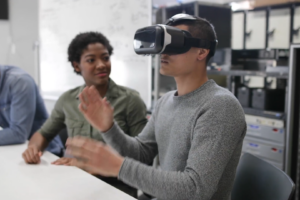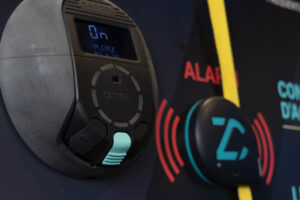
Agrixels: Agricultural Information Standard Oriented Towards AI-Based Services for Use Cases in the Agri-Food Sector
June 19, 2025
OPTIMA: Optimisation of Photovoltaic Technology for Self-Consumption in Buildings
June 23, 202520/06/2025
The UPCxels project, led by the Intelligent Data sciEnce and Artificial Intelligence Research Group (IDEAI-UPC) at the Universitat Politècnica de Catalunya - BarcelonaTech (UPC), aims to create an open, cross-sectoral platform for a shared data space across multiple fields, with a special focus on the agri-food sector.
Today, data is a key resource driving innovation. But its real power is unleashed when shared with purpose.
In this context, the UPCxels platform seeks to transform collected data into strategic assets, i.e., data that is valuable for decision-making. Rather than a traditional sectoral data space (SDS), it functions as a data marketplace, enabling businesses to monetise, optimise and scale through advanced analytics and artificial intelligence.
Designed to foster collaboration among companies, institutions and organisations, UPCxels will ensure secure, efficient and fully interoperable data exchange. Data control always remains in the hands of the user, who can decide what to share, with whom, and under what conditions, with guarantees of security, traceability, and regulatory compliance. All of this is built on a scalable cloud infrastructure, with 24/7 security and monitoring to ensure service performance and quality.
UPCxels enables access to:
- Advanced governance: legally valid digital contracts ensuring data traceability, sovereignty and security.
- Connection to European standards: compatible with Gaia-X, Eclipse and IDSA, integrating major European data frameworks.
- AI-based analytics: extracts valuable insights to optimise processes and improve decision-making.
- Process automation: reduces bureaucratic burden through smart contracts and optimised data flows.
Impact
UPCxels has a direct impact on key economic sectors, offering data-driven solutions that enhance efficiency, sustainability, and decision-making.
In the agri-food domain, it enables more precise and responsible resource management, boosting productivity and reducing environmental impact. In the context of Industry 4.0, it helps optimise production processes through advanced data analysis, fostering competitiveness and innovation. In the energy sector, it improves demand management, consumption forecasting, and optimisation of renewable energy sources. Finally, in mobility, it supports more efficient and sustainable urban planning through real-time data management.
Budget and Funding
In addition to IDEAI-UPC, UPCxels involves the following research groups and centres from UPC: Communications and Broadband Architectures Lab (CBA), Database Technologies and lnformation Management Group (DTIM) from the Department of Service and Information System Engineering (ESSI), Castelldefels School of Telecommunications and Aerospace Engineering (EETAC), CER Agrotech-UPC, and the Data Management Group (DAMA).
The project has received a budget of € 933,732, funded under the Recovery, Transformation and Resilience Plan by the Ministry of Digital Transformation and Public Function (Government of Spain). It will run for 14 months (November 2024 – December 2025).
More information: https://upcxels.upc.edu/

You want to know more?
Related Projects
- The Visualisation, Virtual Reality and Graphic Interaction Research Group (ViRVIG) at the Universitat Politècnica de Catalunya - BarcelonaTech (UPC) has participated in the XR4ED project, an initiative that connects the educational technology (EdTech) and Extended Reality (XR) sectors, with the aim of transforming learning and training across Europe.
- The inLab FIB at the UPC has collaborated with Lizcore® for the development of a proof of concept based on artificial intelligence to improve safety in climbing with autobelay devices. The system allows the automatic and accurate detection of risk situations before starting a route.
- Researchers from the Centre for Image and Multimedia Technology of the UPC (CITM) and from the DiCode research group (Digital Culture and Creative Technologies Research Group) of the Universitat Politècnica de Catalunya – BarcelonaTech (UPC) have worked on the project The Eyes of History, an initiative of the Catalan Agency for Cultural Heritage that offers an immersive view of Catalan cultural heritage. It is especially aimed at the first and second cycles of secondary education and was created to bring heritage into the classroom. Its goal is to bring the history and monuments of Catalonia closer in a vivid and innovative way, using tools such as virtual reality and new museographic narratives.
- City and Play is a social action project coordinated by researchers from the Centre for Image and Multimedia Technology (CITM) and the DiCode research group (Digital Culture and Creative Technologies Research Group) of the Universitat Politècnica de Catalunya – BarcelonaTech (UPC), the Universitat Oberta de Catalunya (UOC) and the University of Barcelona (UB), and funded by Barcelona City Council. The aim of the project is to promote civic competences and reflection on the urban environment among adolescents through the creation of an open framework that uses methodologies based on play, co-creation and storytelling.




